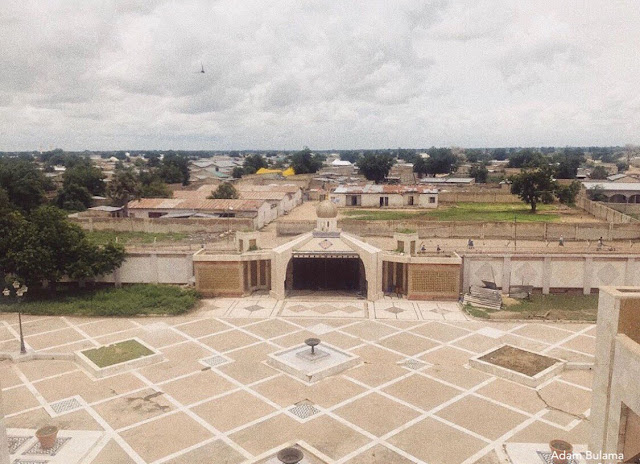What Is The First Television Station In Nigeria?: Who Established It, And What Year Was Its Established?

Introduction
The world of television is filled with pioneers who changed how people accessed information and entertainment, and Nigeria is no exception. The story of television in Nigeria is one of ambition, vision, and a desire to lead not only the country but also the entire African continent into the media age. So, what is the first television station in Nigeria, and who were the visionaries behind it?
In this article, we’ll uncover the fascinating history of the first television station in Nigeria, delving into the motivations, people, and year it was established. We’ll also look at how this landmark achievement inspired future developments, including the country’s first private television station, setting Nigeria up as a leader in African broadcasting.

The Birth of Television in Nigeria
The 1950s was a pivotal decade for Nigeria. As the country inched closer to independence, leaders sought ways to educate, entertain, and inform the public. Before television, Nigeria relied primarily on radio broadcasts and print media for information, but there was a growing demand for visual media.
At the time, television was seen as a powerful tool that could unify the country, promote local culture, and provide educational content. Nigeria was under British colonial rule, and the establishment of a television station could also serve as a statement of progress, positioning Nigeria as a modern, forward-thinking society.
Why a Television Station Was Established
Establishing a television station was not solely about entertainment; it was a strategic move for cultural and political empowerment. Leaders saw television as a way to foster a sense of identity, especially as the country prepared for its independence in 1960. Television would allow Nigerians to tell their own stories, showcase their unique heritage, and offer educational content that reflected local values and knowledge.
Western Nigeria, in particular, took the lead in this endeavor. The regional government recognized that a station could provide access to information that would inform and engage the public, helping to build a more informed citizenry.
Who Established the First Television Station in Nigeria?
The establishment of Nigeria’s first television station was spearheaded by the government of Western Nigeria, with significant leadership from Chief Obafemi Awolowo. As the Premier of Western Nigeria, Awolowo envisioned a station that would serve as an educational and cultural tool, bringing the latest in news, entertainment, and knowledge directly to the people.
The Role of Western Nigeria Government
The government of Western Nigeria, one of the country’s regions, had a forward-thinking approach to media. Led by Chief Awolowo, they were proactive in establishing institutions that would support education and culture, with television seen as a valuable extension of this vision. It was a groundbreaking step, as Nigeria became the first African country to have a television station, showing the world that it was ready to lead in the modern era of information technology.
The Western Nigerian government wasn’t just setting up a media outlet; they were establishing a legacy, one that would go on to impact generations of Nigerians and inspire other African nations.
Chief Obafemi Awolowo’s Vision
Chief Obafemi Awolowo was a visionary leader who believed strongly in the power of education and information as tools for empowerment. Under his leadership, the Western Nigerian government approved the creation of a television station in Ibadan, the capital of Western Nigeria. Awolowo saw television as a medium that would democratize information, bringing knowledge and entertainment to people in cities and villages alike. His vision went beyond merely setting up a station; he wanted to provide a voice for Nigerians and a space where African stories could be told by Africans.
When Was the First Television Station Established?
The exact year when Nigeria made broadcasting history was 1959. Western Nigeria Television (WNTV) was officially launched on October 31, 1959, making it the first television station not only in Nigeria but also in Africa. This bold move marked Nigeria as a broadcasting pioneer on the continent.
The Landmark Year: 1959
The year 1959 stands out in Nigeria’s history as the start of the nation’s journey into television broadcasting. This early adoption of television placed Nigeria ahead of many countries globally, making WNTV a significant achievement for both the country and the continent. The station was set up in Ibadan, which became a broadcasting hub, and it quickly attracted viewers who were eager to experience this new form of media.
Inaugural Broadcast and Public Reception
On the night of October 31, 1959, WNTV aired its first broadcast, capturing the attention of viewers who gathered to witness the landmark event. The programming initially focused on educational and informational content, reflecting Awolowo’s vision for a station that would serve the public good. The response was overwhelmingly positive, and WNTV quickly became a household name as Nigerians tuned in to watch shows that reflected their culture and interests.
Significance of Western Nigeria Television (WNTV)
The establishment of WNTV in 1959 was more than just a technological achievement—it was a cultural milestone for Nigeria and all of Africa. WNTV didn’t just introduce Nigerians to television; it pioneered an era of African-centered broadcasting that focused on educating and entertaining the public with local content. This station symbolized Nigeria’s independence movement, representing a growing desire for self-expression and African representation in the media.
First Television Station in Africa
WNTV holds the distinction of being the first television station in Africa, a title that made Nigeria a broadcasting leader on the continent. While other African nations would soon follow, Nigeria’s early adoption of television put it at the forefront of media innovation. WNTV’s existence demonstrated that Africa, too, could develop and operate advanced technologies and create a broadcasting model that reflected its unique culture and values.
The station’s success inspired other African countries to consider launching their own television stations, proving that media could be both a modernizing force and a platform for preserving cultural heritage. By becoming the first African television station, WNTV also set the stage for future Nigerian media ventures, ultimately influencing the entire industry.
Cultural and Educational Impact
WNTV’s influence wasn’t limited to entertainment; it played a crucial role in educating the Nigerian public. The station initially focused on programming that could inform, enlighten, and educate, covering topics from health and hygiene to agriculture and civic responsibilities. It was a powerful medium for reaching people across Western Nigeria, including rural areas where access to information was limited.
Educational programming helped bridge the information gap between urban and rural communities, fostering a sense of unity and shared knowledge. Culturally, WNTV introduced Nigerian viewers to local plays, traditional music, and folklore, helping preserve and promote Nigerian heritage. This dual role of education and cultural preservation established WNTV as an institution of immense national value.
The First Private Television Station in Nigeria
The introduction of WNTV paved the way for Nigeria’s thriving television industry, but it would be several decades before private television stations emerged. For many years, television was state-controlled, with regional governments overseeing stations. However, by the 1990s, media reforms allowed private ownership, leading to a new era in Nigerian broadcasting.
Rise of Private Broadcasting in the 1990s
In the early 1990s, the Nigerian government made a historic decision to deregulate the media industry, allowing private entities to own and operate television stations. This move was part of a larger shift toward liberalization, which aimed to foster competition, improve content quality, and provide viewers with more programming options. The National Broadcasting Commission (NBC) was established to regulate the industry, ensuring that private stations adhered to broadcasting standards.
The rise of private broadcasting diversified Nigeria’s media landscape, bringing new voices, perspectives, and content styles to Nigerian viewers. This transition marked a shift away from state-controlled messaging, offering Nigerians a broader selection of news, entertainment, and educational programming.
AIT: Nigeria’s First Private TV Station
In 1993, Africa Independent Television (AIT) became Nigeria’s first private television station, breaking the state monopoly and introducing a new model of media ownership. AIT was founded by Dr. Raymond Dokpesi, a visionary media entrepreneur who saw the potential for a privately owned station that could compete with government-run channels. AIT offered a mix of local and international programming, quickly gaining popularity for its diverse and high-quality content.
As the first private television station in Nigeria, AIT set a precedent, inspiring other private stations to enter the market. It also marked the start of a more competitive and innovative media industry, one where viewers could choose from a variety of channels, each offering unique programming and viewpoints.
Evolution of Television in Nigeria
Since the establishment of WNTV and AIT, Nigerian television has evolved tremendously. The industry has expanded to include numerous regional and national stations, each contributing to the rich and diverse media landscape. Technological advancements have also played a significant role, with digital broadcasting transforming how Nigerians access and interact with television content.
The Growth of Regional and National Stations
Following WNTV’s success, more regions established their own stations, creating a network of regional broadcasters that catered to local audiences. This growth continued after independence, as national stations emerged to provide coverage across the country. The Nigerian Television Authority (NTA) was established in 1977 to unify these regional stations under a single national broadcaster, ensuring that all Nigerians had access to reliable information and entertainment.
Today, Nigeria has a vast array of regional and national stations, offering programming in multiple languages and reflecting the country’s cultural diversity. This network of stations serves as a bridge between Nigeria’s regions, bringing people together through shared stories, news, and entertainment.
Technological Advancements and Digital TV
From analog to digital, Nigerian television has undergone significant technological shifts. The move to digital broadcasting has improved picture quality, sound, and accessibility, making television more appealing to audiences. Digital technology has also enabled the growth of on-demand content, with Nigerian stations now streaming programs online and reaching global audiences.
The digitization of Nigerian television has brought the industry into the 21st century, offering viewers a more dynamic and interactive experience. It has also opened new revenue streams, allowing broadcasters to monetize content through ads, subscriptions, and international licensing deals.
Conclusion
The journey of Nigerian television began with the establishment of WNTV in 1959, a bold move that made Nigeria a broadcasting pioneer in Africa. From its inception as the first television station in Africa to the rise of private channels like AIT, Nigerian television has grown into a vibrant industry that reflects the country’s cultural richness and diversity. Today, Nigerian television continues to evolve, embracing new technologies and reaching audiences across the globe. The legacy of WNTV lives on, inspiring future generations and affirming Nigeria’s place as a leader in African media.
FAQs
1. What is the first television station in Nigeria?
The first television station in Nigeria is the Nigerian Television Service (NTS), which later became known as the Nigerian Broadcasting Corporation (NBC).
2. Who established the first television station in Nigeria?
The first television station was established by the Nigerian government under the leadership of Chief Obafemi Awolowo.
3. In what year was the first television station in Nigeria established?
The Nigerian Television Service (NTS) was officially launched on October 31, 1959.
4. Where was the first television station located?
The first television station was located in Ibadan, Oyo State, Nigeria.
5. What was the primary purpose of establishing the first television station in Nigeria?
The primary purpose was to provide a platform for information dissemination, education, and entertainment for Nigerians.
6. How did the first television broadcasts in Nigeria differ from today’s broadcasts?
Initially, broadcasts were limited in terms of programming and reach, focusing on educational content and news, unlike today’s diverse programming options.
7. What was the significance of the first television station in Nigeria’s media landscape?
It marked the beginning of television broadcasting in Nigeria, paving the way for the growth of the media industry and promoting national unity through information sharing.
8. Did the first television station in Nigeria operate 24/7?
No, the NTS initially had limited broadcasting hours, typically operating a few hours each day.
9. What challenges did the first television station face during its early years?
The station faced challenges such as limited technology, financial constraints, and the need to develop local programming to cater to Nigerian audiences.
10. How has the legacy of the first television station influenced Nigerian media today?
The establishment of the first television station set the foundation for a vibrant media landscape in Nigeria, leading to the growth of numerous television stations and a rich diversity of content.





